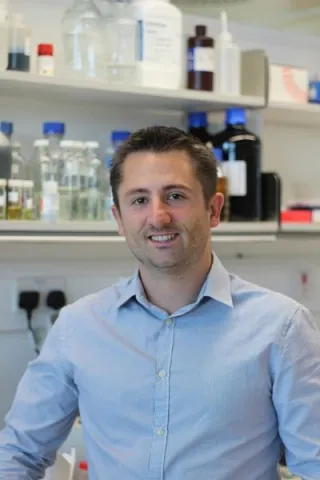About the project
Therapeutic oligonucleotides are unique in targeting mRNA particularly those that cannot be addressed by conventional small molecule drugs or therapeutic antibodies, their potential is growing fast. The development and application of Therapeutic Nucleic Acids, in a general, have been drawing the interest of several biotech companies.
The future potential has been established recently with mRNA vaccine research team winning the 2023 Nobel Prize in Medicine. More than 18 nucleic acid therapeutics have been approved for treatment of neurological and other diseases.
Nonetheless, the main limitation in the therapeutic application of nucleic acids is represented by the hurdle in achieving specific and efficient intracellular delivery.
Despite various strategies being developed, tissue specific delivery is yet far from being solved.
We will synthesise and investigate different chemical modification and the output of the project will represent a critical leap forward in modified nucleic acids to improve their stability and efficacy in cells and enhance their delivery with enormous impact for different neurological diseases.
Your objective would be the synthesis of modified monomers, to incorporate them in modified nucleic acids, and investigate their biophysical and biological properties.
If successful, you'll join a dynamic and enthusiastic group at our School of Chemistry.
You'll benefit from the outstanding facilities and vibrant environment provided by the department which has a national and international reputation for excellence. You'll also have the chance to visit collaborator’s labs for cell-based assays in both Southampton and Oxford.

